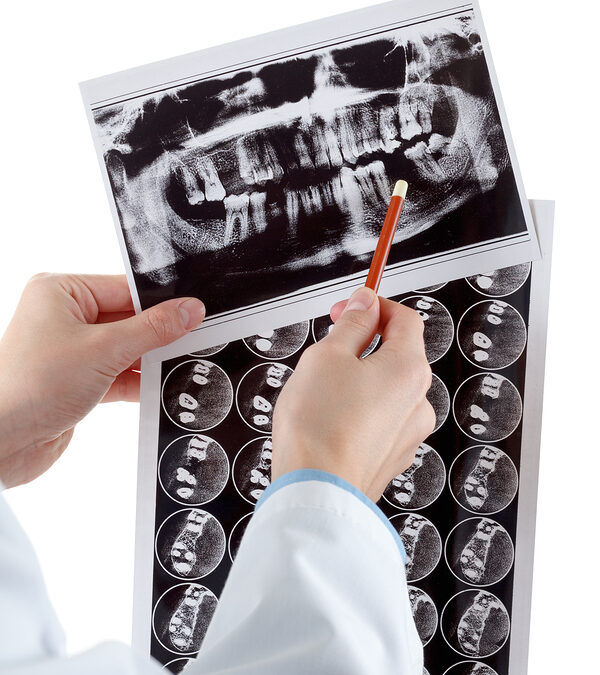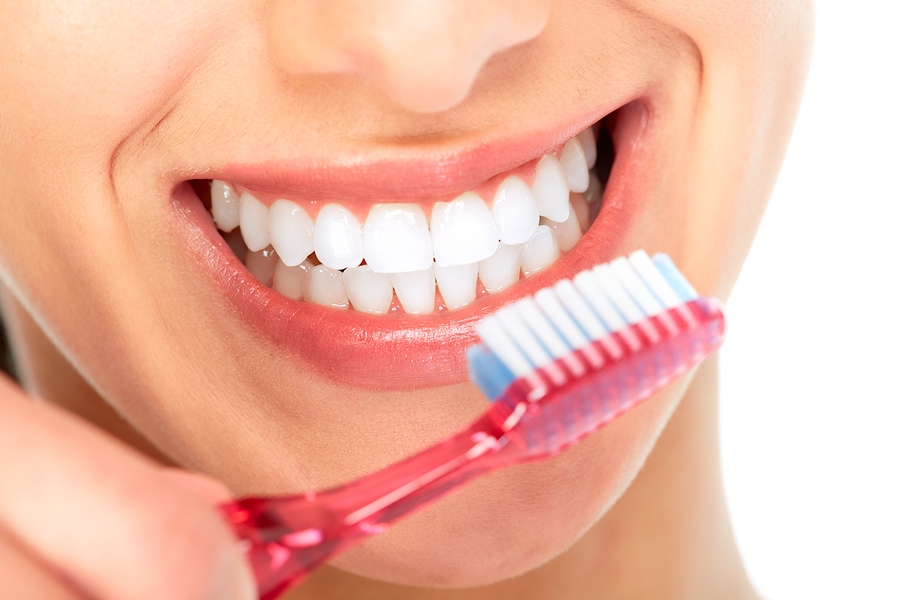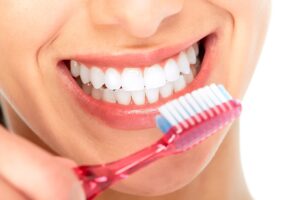
by Dr. Jacqueline S. Allen | Jun 28, 2017 | Blog, Endodontics, Endodontist, Phoenix Endodontic Group, Root Canal
 When we think of tooth saving tips, we immediately think of oral hygiene (brushing and flossing) or prevention like wearing your mouthguard during sports or other physical activity. But, rarely, do we think of the choice to be made once a tooth is compromised.
When we think of tooth saving tips, we immediately think of oral hygiene (brushing and flossing) or prevention like wearing your mouthguard during sports or other physical activity. But, rarely, do we think of the choice to be made once a tooth is compromised.
The American Association of Endodontists has an array of tooth saving tips once a tooth needs intervention: “Saving a natural tooth through endodontic treatment should always be the first choice for the best health and cosmetic results. There are many advantages to saving your natural tooth: efficient chewing; normal biting force so you can continue to eat your favorite foods; maintains a natural appearance; limits the need for more costly, ongoing dental work”.
Tooth Saving Tips
- If you are given a choice between root canal treatment or tooth extraction, always choose the root canal. Dentures, bridges or implants don’t look, feel, or function as well as natural teeth.
- If your dentist recommends tooth extraction, ask whether root canal treatment is an option.
- If your dentist says that an endodontic procedure is not an option, ask why, and request a referral to an endodontist. Endodontists specialize in saving teeth and have at least two years of advanced training in root canal procedures. They use advanced equipment to treat patients quickly and comfortably, diagnosing the condition, and relieving pain.
What to Avoid
- Never choose extraction because you think it will be cheaper or less painful! When a natural tooth is extracted, it must be replaced with an artificial tooth to prevent other teeth from shifting, and to prevent future dental problems. The cost of a denture, bridge or implant, plus the extraction, is higher than the cost of an endodontic procedure that would save the tooth for years to come. Modern techniques and anesthesia make root canal treatment virtually painless. Most dental plans cover endodontic treatment.
- Never choose extraction because you think it will be quicker! Endodontic treatments generally require 1-2 visits lasting less than an hour. An extraction requires one visit, but the denture, bridge or implant will require several additional visits.
Endodontists are our local superheroes that save teeth! Want to learn more about root canal treatment? Visit Phoenix Endodontic Group at www.phoenixendodontist.com.

by Dr. Jacqueline S. Allen | Jun 21, 2017 | Blog, Cracked Teeth, Endodontics, Endodontist, Root Canal, Sports
 Experiencing a dental injury can be a traumatic experience. If you experience an impact injury to your mouth, you may need root canal treatment, even if the tooth isn’t completely knocked out of your mouth. The pulp of your tooth can be injured if the tooth is pushed into or out of its socket, or if it is forced to one side because of the injury.
Experiencing a dental injury can be a traumatic experience. If you experience an impact injury to your mouth, you may need root canal treatment, even if the tooth isn’t completely knocked out of your mouth. The pulp of your tooth can be injured if the tooth is pushed into or out of its socket, or if it is forced to one side because of the injury.
Here are some common questions and answers about what you should do if you have a dislodged tooth.
Frequently Asked Questions About Dislodged Teeth
Question #1: Ouch! I have a tooth dislodged from an accident. What should I do?
You should contact your endodontist or general dentist to have him or her reposition and stabilize the tooth. Medication such as calcium hydroxide may be put inside the tooth as part of the root canal treatment.
Question #2: Why do I need to see an endodontist about my dislodged tooth?
As mentioned above, an injury severe enough to move a tooth out of its natural place in your mouth is likely to cause damage to the pulp and root of your tooth. Endodontists are experts in providing root canal treatments, which are essential to saving an injured or infected tooth that has damage to its pulp.
Question #3: How soon should root canal treatment be started on a dislodged tooth?
To ensure the best chance for success, root canal treatment on a dislodged tooth should be started within a few days of the injury, whenever possible.
Question #4: My 11-year-old had one of her permanent teeth dislodged. Does she need a root canal treatment?
Maybe. The teeth of children under age 12 are still developing and may be able to recover from an injury in ways that the teeth of an adult cannot. Your endodontist or general dentist should monitor your child’s tooth closely so that he or she can intervene immediately if any unfavorable changes appear.
“Having a tooth dislodged can be scary, and can also really hurt,” says Dr. Jacqueline S. Allen, who practices with the Phoenix Endodontic Group. “It can be reassuring to know that a root canal treatment can help preserve the natural tooth and keep it healthy for years to come!”

by Dr. Jacqueline S. Allen | Apr 20, 2017 | Blog, Dentistry, Endodontist
 At Phoenix Endodontic Group, we believe our staff is what makes our practice so successful! As part of our employee spotlight series, this month, we are highlighting Sarah Apostolakis, one of our prized dental assistants! When not working, Sarah loves being active, “I love the ocean; surfing and snorkeling. I also enjoy hiking and camping.” She brings this same energy to her work. Sarah has experience in periodontics, oral surgery, and general dentistry.
At Phoenix Endodontic Group, we believe our staff is what makes our practice so successful! As part of our employee spotlight series, this month, we are highlighting Sarah Apostolakis, one of our prized dental assistants! When not working, Sarah loves being active, “I love the ocean; surfing and snorkeling. I also enjoy hiking and camping.” She brings this same energy to her work. Sarah has experience in periodontics, oral surgery, and general dentistry.
She expanded on her ongoing learning experience at Phoenix Endodontic Group. “I am grateful to be learning Endodontics, as well as, general assisting skills under the guidance of the highly experienced and knowledgeable professionals at Phoenix Endodontic Group.” Sarah was asked to give an example of the kind of experience that makes Dental Assisting so rewarding:
“A woman had eroded all the enamel off of her teeth; the after effect of drinking 2 liters of Diet Coke per day. Her teeth were constantly sensitive and she needed a full mouth reconstruction. We gave her, her smile back, and she was able to eat and drink without sensitivity! In addition, it being a huge confidence booster for her. It was a very rewarding experience.”
Changing negative views of dentistry to positive experiences is why she got into the field. Sarah’s passion for learning and gentle chairside assistance makes her a great addition to the team at Phoenix Endodontic Group.

by Dr. Jacqueline S. Allen | Apr 19, 2017 | Blog, Endodontics, Endodontist, Root Canal
 Our natural teeth are complex, dynamic parts of a living organism – us! Endodontists play a crucial role in allowing us to keep our natural teeth, which in almost all cases provides the safest and most optimal health outcome.
Our natural teeth are complex, dynamic parts of a living organism – us! Endodontists play a crucial role in allowing us to keep our natural teeth, which in almost all cases provides the safest and most optimal health outcome.
According to the American Association of Endodontists, here are just some of the ways in which endodontists help your dental team preserve your natural teeth and keep them healthy for a lifetime.
How Endodontists Help Save Natural Teeth
- Endodontists partner with your general dentist. Endodontics is one of nine specialities recognized by the American Dental Association. Endodontists partner with general dentists and other specialists in diagnosis and treatment planning.
- Endodontists are experts in performing root canals. The root canal procedure, which is often the only way to preserve a natural tooth, typically makes up 95 percent of an endodontist’s workload. They use advanced technology and microsurgical techniques to improve patient comfort and save natural teeth.
- Endodontists receive additional training and are experts in tooth root structure. To become specialists, endodontists receive two years of extra training after completing dental school. They gain the expertise to treat everything from the most common to the most unusual or complex tooth root problems, which diminishes the need for retreatment.
- Endodontists provide a solid foundation for other restorative work. A properly done root canal is an excellent platform on which to build a crown or other restoration. This makes it less likely a patient will experience future complications and have to pay for additional work on the tooth.
“Tooth loss can lead to multiple problems over the long term, including shifting teeth, periodontal challenges and the cost and maintenance of prosthetics,” says Dr. Jacqueline S. Allen, who practices with the Phoenix Endodontic Group. “Our goal as endodontists is to preserve your natural teeth whenever possible and keep them healthy.”

by Dr. Jacqueline S. Allen | Mar 15, 2017 | Blog, Endodontics, Endodontist, Root Canal
 Last month, this blog covered the top myths surrounding the root canal process, and we emphasized the importance of being a savvy Internet consumer when it comes to evaluating medical information. One of the factors involved in myths about root canals spreading across the web happens when readers confuse a description of what root canals used to be like with what the process is generally like today. Here is a brief list of “truths” about what patients typically experience during today’s root canals to help you better understand what you would experience if you were to need a root canal.
Last month, this blog covered the top myths surrounding the root canal process, and we emphasized the importance of being a savvy Internet consumer when it comes to evaluating medical information. One of the factors involved in myths about root canals spreading across the web happens when readers confuse a description of what root canals used to be like with what the process is generally like today. Here is a brief list of “truths” about what patients typically experience during today’s root canals to help you better understand what you would experience if you were to need a root canal.
Today’s Truths About Root Canals
- Today’s root canals relieve pain, rather than cause discomfort. Many root canals are performed to relieve the pain of toothaches caused by pulp inflammation or infection. Modern endodontic techniques and anesthetics keep patients comfortable during the procedure, and after a brief healing period, many patients report their tooth feeling better than ever.
- Today’s root canals are often the best way to save your natural tooth. Often, by the time a root canal is called for, the tooth is either experiencing infection or inflammation of the pulp, or the tooth has been damaged by a fracture. Root canals and other endodontic treatments can often preserve the natural tooth, avoiding the loss of function and appearance change that comes with having the tooth extracted.
- Today’s root canals can last a lifetime! While much depends on how well you care for your teeth and gums after the root canal is performed, if your mouth remains healthy, it is likely your natural tooth that’s been treated with a root canal can stick around as long as you do. It’s important to ensure the crown that’s placed on top of the treated tooth remains structurally sound, because it is your first line of defense against infection or decay that could compromise the tooth.
“It’s very important to get up-to-date information on root canals, since today’s procedure is unlike what your relatives or friends may have experienced a generation – or even a decade – ago,” says Dr. Allen, who practices with the Phoenix Endodontic Group. “The truth is, getting a root canal today is very likely to offer permanent relief from pain in your natural tooth that’s caused by infection or dental injury.”

by Dr. Jacqueline S. Allen | Jan 18, 2017 | Blog, Dentistry, Endodontics, Endodontist, Phoenix Endodontic Group
 When we make an appointment to see an endodontist, there is usually a pressing reason to do so: an infected tooth needs a root canal, a tooth has been dislodged or knocked out and needs to be placed back in the mouth, etc. While we can’t always avoid situations that lead us to needing endodontic treatment, there are actions we can take that will lower our risk of suffering infected or damaged teeth. Here are a few dental care tips to get your new year off to a great start.
When we make an appointment to see an endodontist, there is usually a pressing reason to do so: an infected tooth needs a root canal, a tooth has been dislodged or knocked out and needs to be placed back in the mouth, etc. While we can’t always avoid situations that lead us to needing endodontic treatment, there are actions we can take that will lower our risk of suffering infected or damaged teeth. Here are a few dental care tips to get your new year off to a great start.
Dental Care Tips for 2017: Priorities for Protecting Your Teeth!
- Prevent tooth decay. Help your natural teeth remain strong by protecting them from plaque by brushing twice daily and flossing once a day. The way your toothbrush is held makes a difference as to how effective your brushing is. The right way to brush your teeth is by holding your toothbrush at a small angle against your teeth. Don’t brush too hard – that just irritates your gums.
- Take care of your gums. Speaking of gums, if you skip out on building a daily oral hygiene regimen and don’t show up for your regular dental check-ups – which gives dental professionals a chance to examine the state of your oral health and clean your teeth thoroughly – you may end up with a gum disease such as gingivitis or periodontitis. Gum diseases produce almost no outward symptoms until they are quite advanced, so it’s important to focus on prevention and receiving regular dental care.
- Protect your teeth from damage. There’s a lot you can do to prevent your teeth from becoming damaged. First and foremost, if you play a contact sport, use a mouth guard. Teeth can also become cracked or chipped through grinding one’s teeth (bruxism), or biting down on a food such as nuts or hard candy. Sometimes the damage to your teeth is not visible to the naked eye; it’s always a good idea to have your dentist examine your teeth if you have symptoms such as only being able to chew on one side of your mouth due to pain, or having a tooth that’s extra sensitive to hot or cold foods.
“Even though proper dental care can’t guarantee that you won’t need to see an endodontist in 2017, it will improve your dental health overall, and that should help you bounce back from any challenges to your teeth that might come your way,” says Dr. Allen, who practices with the Phoenix Endodontic Group.

 When we think of tooth saving tips, we immediately think of oral hygiene (brushing and flossing) or prevention like wearing your mouthguard during sports or other physical activity. But, rarely, do we think of the choice to be made once a tooth is compromised.
When we think of tooth saving tips, we immediately think of oral hygiene (brushing and flossing) or prevention like wearing your mouthguard during sports or other physical activity. But, rarely, do we think of the choice to be made once a tooth is compromised.

 Experiencing a dental injury can be a traumatic experience. If you experience an impact injury to your mouth, you may need root canal treatment, even if the tooth isn’t completely knocked out of your mouth. The pulp of your tooth can be injured if the tooth is pushed into or out of its socket, or if it is forced to one side because of the injury.
Experiencing a dental injury can be a traumatic experience. If you experience an impact injury to your mouth, you may need root canal treatment, even if the tooth isn’t completely knocked out of your mouth. The pulp of your tooth can be injured if the tooth is pushed into or out of its socket, or if it is forced to one side because of the injury.
 At Phoenix Endodontic Group, we believe our staff is what makes our practice so successful! As part of our employee spotlight series, this month, we are highlighting Sarah Apostolakis, one of our prized dental assistants! When not working, Sarah loves being active, “I love the ocean; surfing and snorkeling. I also enjoy hiking and camping.” She brings this same energy to her work. Sarah has experience in periodontics, oral surgery, and general dentistry.
At Phoenix Endodontic Group, we believe our staff is what makes our practice so successful! As part of our employee spotlight series, this month, we are highlighting Sarah Apostolakis, one of our prized dental assistants! When not working, Sarah loves being active, “I love the ocean; surfing and snorkeling. I also enjoy hiking and camping.” She brings this same energy to her work. Sarah has experience in periodontics, oral surgery, and general dentistry.
 Our natural teeth are complex, dynamic parts of a living organism – us! Endodontists play a crucial role in allowing us to keep our natural teeth, which in almost all cases provides the safest and most optimal health outcome.
Our natural teeth are complex, dynamic parts of a living organism – us! Endodontists play a crucial role in allowing us to keep our natural teeth, which in almost all cases provides the safest and most optimal health outcome.
 Last month, this blog covered the top myths surrounding the root canal process, and we emphasized the importance of being a savvy Internet consumer when it comes to evaluating medical information. One of the factors involved in myths about root canals spreading across the web happens when readers confuse a description of what root canals used to be like with what the process is generally like today. Here is a brief list of “truths” about what patients typically experience during today’s root canals to help you better understand what you would experience if you were to need a root canal.
Last month, this blog covered the top myths surrounding the root canal process, and we emphasized the importance of being a savvy Internet consumer when it comes to evaluating medical information. One of the factors involved in myths about root canals spreading across the web happens when readers confuse a description of what root canals used to be like with what the process is generally like today. Here is a brief list of “truths” about what patients typically experience during today’s root canals to help you better understand what you would experience if you were to need a root canal.
 When we make an appointment to see an endodontist, there is usually a pressing reason to do so: an infected tooth needs a root canal, a tooth has been dislodged or knocked out and needs to be placed back in the mouth, etc. While we can’t always avoid situations that lead us to needing endodontic treatment, there are actions we can take that will lower our risk of suffering infected or damaged teeth. Here are a few dental care tips to get your new year off to a great start.
When we make an appointment to see an endodontist, there is usually a pressing reason to do so: an infected tooth needs a root canal, a tooth has been dislodged or knocked out and needs to be placed back in the mouth, etc. While we can’t always avoid situations that lead us to needing endodontic treatment, there are actions we can take that will lower our risk of suffering infected or damaged teeth. Here are a few dental care tips to get your new year off to a great start.